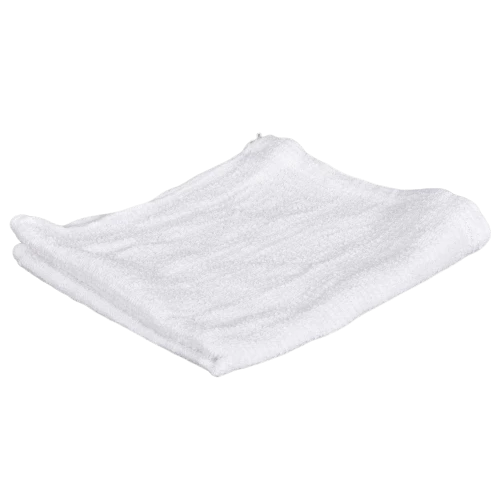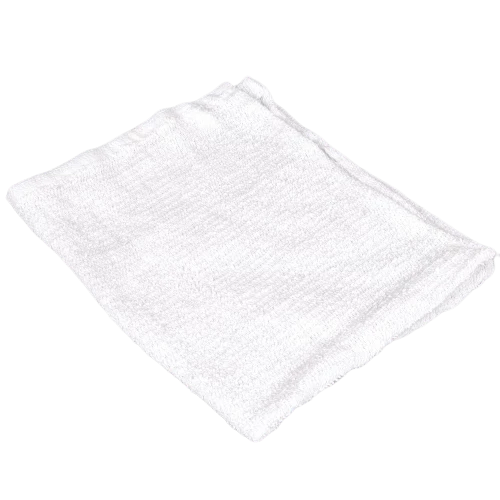Sanitation towel, also known as disposable wipes, are essential for keeping our hands & surfaces clean. They are constructed from various materials, such as cotton, paper, or a blend. Cotton sanitation towel are particularly effective in removing dirt & grime that is gentle on the skin. They are also more environmentally friendly than paper towels, as they are biodegradable & can be washed and reused multiple times.
Maintaining personal hygiene is essential for preserving our physical and mental well-being. It extends beyond mere appearances and plays a vital role in safeguarding ourselves and others from harmful bacteria and viruses. An often neglected facet of personal hygiene involves incorporating the use of sanitation towels.
But why are sanitation towel so important? For one, they provide a convenient & easy way to clean our hands and surfaces when soap and water are not readily available. They are perfect for use on the go, whether at the gym, in the office, or while traveling. They are also a great alternative to traditional hand dryers, which can spread germs and bacteria.
Sanitation towel also play a crucial role in preventing the spread of germs and bacteria. They effectively clean and disinfect surfaces, such as desks, counters, and doorknobs. It’s especially important in public places where many people come into contact with the same surfaces.
In addition to their practical uses, sanitation towel also offer a sense of reassurance. The assurance that you can quickly and easily sanitize your hands and surfaces can bring you relief and assurance in your cleanliness regimen.
Sanitation Towel vs. Traditional Hand Dryers: Which is More Hygienic

There are two main options for drying our hands after washing them: a traditional hand dryer or a sanitation towel. Both have pros & cons, but when it comes to hygiene, which is the clear winner?
Let’s start with traditional hand dryers. These machines use high-speed air to dry our hands & are often found in public restrooms. Hand dryers may be convenient and save on paper waste, but research has demonstrated that they have the potential to spread germs and bacteria. The high-speed air can blow germs from one person’s hands onto another person’s hands or into the air, potentially spreading infections.
On the other hand, sanitation towel, also known as disposable wipes, are an effective way to clean and dry our hands. Various materials, such as cotton, paper, or a combination, can be used to make them. Cotton sanitation towels are particularly effective in removing dirt and grime and are gentle on the skin. They are also more environmentally friendly than paper towels, as they are biodegradable and can be washed and reused multiple times. Moreover, they are a great way to prevent the spread of germs and bacteria, as they can also clean and disinfect surfaces.
So, which is more hygienic? The answer is clear: sanitation towels. They not only clean and dry our hands, but they also help prevent the spread of germs and bacteria. On the other hand, traditional hand dryers can contribute to the spread of germs and bacteria.
Of course, other factors should be considered when choosing hand dryers and sanitation towels. For example, hand dryers are more energy-efficient and save on paper waste. However, it’s hard to beat the effectiveness of a good old-fashioned sanitation towel when it comes to hygiene.
How to Keep Sanitation Levels High with Cotton Towels

Keeping sanitation levels high is crucial for maintaining our physical and mental well-being. It’s about looking clean and protecting ourselves and others from harmful bacteria and viruses. An effective approach to achieve this is to employ cotton sanitation towels.
Cotton towels are an essential tool for keeping our hands and surfaces clean. They are made of a natural and breathable material, which makes them gentle on the skin. They are also more environmentally friendly than paper towels, as they are biodegradable and can be washed and reused multiple times.
But how can we ensure that our cotton sanitation towels remain hygienic? Here are some tips:
Wash them regularly: Make sure to wash your cotton towels regularly, especially if you use them frequently. A good guideline is washing them every 3-4 uses.
Use the right detergent: Use a detergent specifically designed for sanitizing, such as one with chlorine or hydrogen peroxide; this will Disinfect the towels to eliminate any germs or bacteria on the towels.
Dry them properly: Make sure to dry your cotton towels completely after washing them; this will help prevent mold & mildew, which can harbor harmful bacteria.
Store them properly: Keep your cotton towels in a clean & dry place. Please keep them in a dry place to prevent damage from moisture, which can encourage the growth of bacteria.
Use them in moderation: avoid using them excessively to preserve their hygiene & reduce the need for frequent washing.
By abiding by these suggestions, you can guarantee that your cotton cleaning cloths stay sanitary and efficient in keeping your hands & surfaces spotless. With the right care, cotton towels can be a reliable, sustainable and hygienic solution to keep your sanitation levels high.



How to Properly Dispose of Used Sanitized Cotton Towels

Sanitized cotton towels are convenient and effective for keeping our hands and surfaces clean. How can we ensure that used sanitized cotton towels don’t cause negative environmental and public health impacts? Here are some tips for proper disposal: Ensure that the towels are completely dry to prevent the growth of bacteria and fungi; place them in a sealed plastic bag before disposing of them in the trash; or, if possible, donate them to organizations that can repurpose them.
Check for contamination: Before disposing of your sanitized cotton towels, make sure they are not contaminated with any harmful substances such as chemicals, biohazards, or medical waste. If so, proper protocols for the disposal of such substances should be followed.
Reuse them: Before throwing away sanitized cotton towels, consider if they can be reused. They can be used for cleaning, dusting or as rags.
Donate them: If your sanitized cotton towels are in good condition, consider donating them to shelters, animal shelters or any organizations that can use them.
Compost them: If your sanitized cotton towels are made of 100% natural fibers and have no chemical or synthetic residues, they can be composted with other organic waste; this will help to break them down and return nutrients to the soil.
Properly dispose of them: If none of the above options are possible, properly dispose of them by placing them in a sealed bag or container and then disposing of them in your regular trash.
Remember, these towels are convenient and effective for keeping our hands and surfaces clean. Still, they must be disposed of properly to avoid negative environmental and public health impacts.
The Best Ways to Clean and Sanitize Cotton Towels

Cotton towels are versatile and essential for keeping our hands and surfaces clean. These items are gentle on the skin, eco-friendly, and can be laundered and reused many times. But, to ensure that they remain hygienic and effective, it’s important to clean and sanitize them properly. So, what are the best ways to clean and sanitize cotton towels?
Use hot water: Kill germs and bacteria; it’s important to wash cotton towels in hot water. The water temperature should be at least 160°F (71°C) to sanitize the towels effectively.
Use a sanitizing detergent: Regular detergent may not kill germs and bacteria. Consider using a detergent specifically designed for sanitizing, such as one with chlorine or hydrogen peroxide.
Refrain from overloading the washing machine: Overloading the washing machine can prevent the towels from getting cleaned and sanitized. Make sure to wash them in small loads for the best results.
Add vinegar or lemon juice: White vinegar or lemon juice can be added to the wash cycle as a natural sanitizer and deodorizer.
Dry them properly: Make sure to dry your cotton towels completely after washing them; this will help prevent mold and mildew, which can harbor harmful bacteria.
Iron them: Ironing your towels after washing and drying can help to kill any remaining germs or bacteria.
What to Look for When Buying Wholesale Sanitation Cotton Towel
When buying wholesale sanitation cotton towels, there are a few key things to consider to ensure you’re getting the best quality and value for your money.
Material: Ensure the cotton towels you buy are made of 100% natural fibers. Cotton is soft, absorbent, and durable, making it great for sanitation towels.
Size: Consider the size of the towels you’ll be using. Wholesale towels come in various sizes, so choose the best suits your needs.
Quality: Check the quality of the cotton. Look for thick, durable towels that can withstand multiple washes without losing their shape or softness.
Color: Some wholesale cotton towels come in various colors; choose the color best suits your needs.
Packaging: Look for wholesale cotton towels that are packaged in a way that makes them easy to store and use. Some wholesale towels come packed in bulk, while others come in individual packaging.
By keeping these things in mind when shopping for wholesale sanitation cotton towels, you can ensure that you’re getting the best quality and value for your money. Remember, cotton towels are a reliable, sustainable and hygienic solution to keep your sanitation levels high, but it’s important to choose the right one to get the best results.
In conclusion, when buying wholesale sanitation cotton towels, it’s important to consider material, size, quality, color, packaging, price, and brand reputation. By keeping these things in mind, you can ensure that you’re getting the best quality and value for your money and have a reliable, sustainable and hygienic solution to keep your sanitation levels high.
How to sanitize towels without bleach
There are several ways to sanitize towels without using bleach. One method is to wash the towels in hot water (at least 140°F) with detergent and add a cup of white vinegar or 1/2 cup of baking soda to the rinse cycle. Another option is to use a laundry sanitizer like hydrogen peroxide or lemon juice in place of bleach. Another method is to use a sanitizing cycle on your washing machine or to use UV sanitizing box. Additionally, you can also try steam cleaning the towels for sanitizing.
How do hotels sanitize towels
Hotels typically use industrial washing machines & laundry detergents to sanitize towels. They may also use bleach or other sanitizing agents to ensure that the towels are thoroughly cleaned & disinfected.
Hotels may also use high temperature to sanitize towels, with most machines reaching temperatures of 150°F or higher. Some hotels also use ozone generators to sanitize linens, which is an eco-friendly and chemical-free method.
In addition to these methods, hotels may also follow strict protocols for handling & storing clean and used linens to prevent cross-contamination. This may include using separate carts and storage areas for clean and used linens, as well as regularly inspecting and maintaining laundry equipment.
2023 Best Wholesale Waist Aprons | Towel Depot

Wholesale Waist aprons are a type of clothing that is worn around the waist to protect the clothing underneath. They are commonly used by chefs, servers, bartenders, and other food service professionals. They are typically made of durable materials such as cotton or poly-cotton blends and come in various colors and styles to suit different preferences and needs.
4.46





















